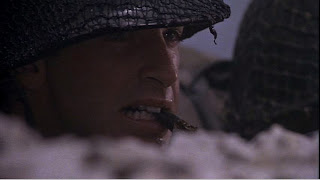Today is another day to live in infamy. A year ago, a mob invaded the capitol building, urged on by, of all people, the sitting president. It is hard to fathom. It is hard to fathom how that former president is still a free man - it speaks poorly of us, as a country that he is not in prison.
This is an infamous day. It is comparable to December 7 or September 11 - or April 12, which doesn't always get the same attention the others do. It might be easier to focus on attacks from outside the country - attacks from inside? It's harder, sometimes, to see them for what they are. But this is an attack, as surely as any of those. Indeed, more of an attack, in some ways - it was (like April 12, 1861) an attack on the principal of the United States as such, on democracy as such, on the Republic as such.
The fact that the people doing it were ridiculous nincompoops, with their QANON conspiracies and their imaginary voter fraud and their red hats and blue flags and whatnot, might hide some fo the seriousness of it. Were they going to overthrow the government? it is hard to see it. If they didm what would they do with it? But they were still attacking the country. And their leaders - while Trump himself is a clown, an incompetent boob, a failure at every single thing he ever did (including this) - he is still as explicitly anti-American as any American figure in an awful long while. He is a fascist, he wanted to overthrow the government, make himself dictator for life - he failed, and surely will fail again if he is still breaking in three years - but he meant it. And bot everyone around him is as stupid as he is, though - by god, there are some stupid people around him. But they are also evil. There is no stupid or evil problem with Trump and his followers - they are both. And the evil is real.
So: they need to be held accountable. Trump needs to be held accountable.s long as he walks around free, we are failing the country, we are encouraging him and worse people to try it again. And even if they fail again - a lot of people will suffer for it. The Confederates failed - but they caused unimaginable suffering before they did. I fear for the nation...


